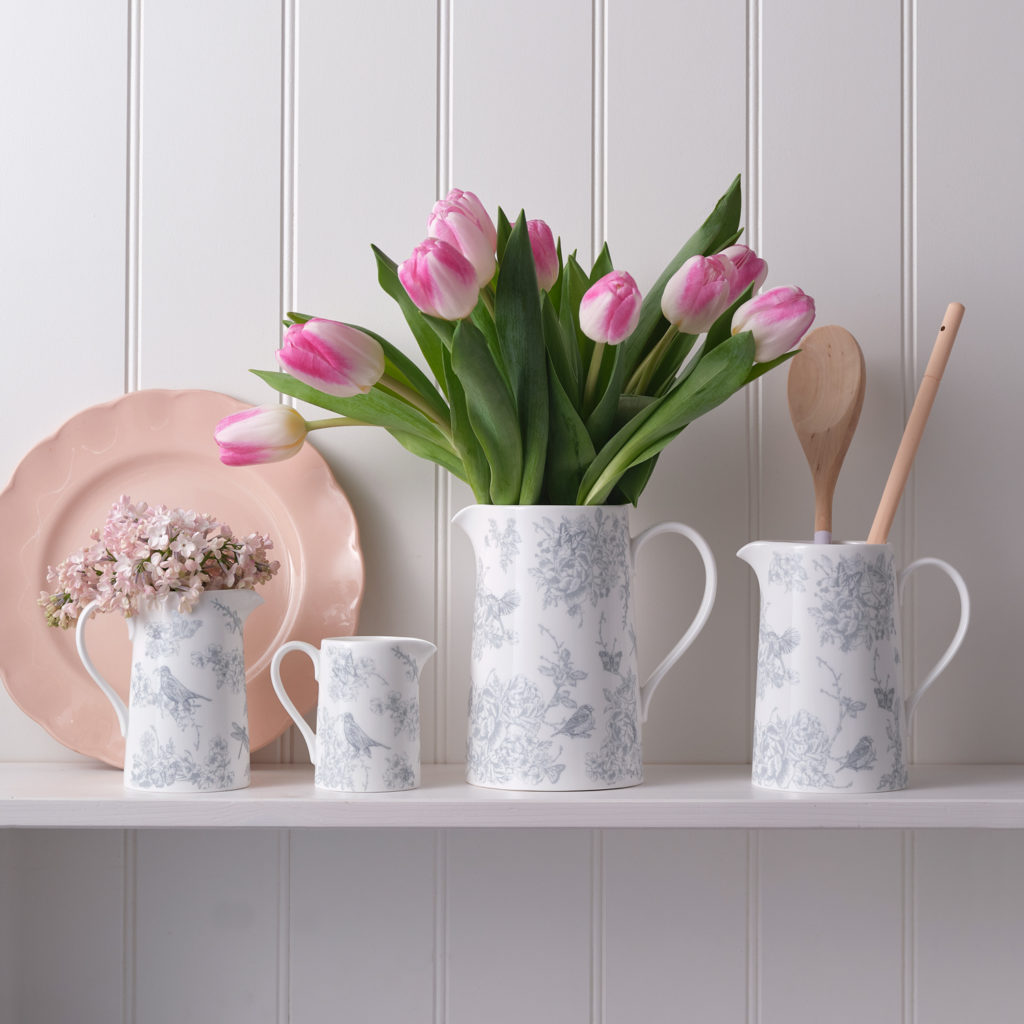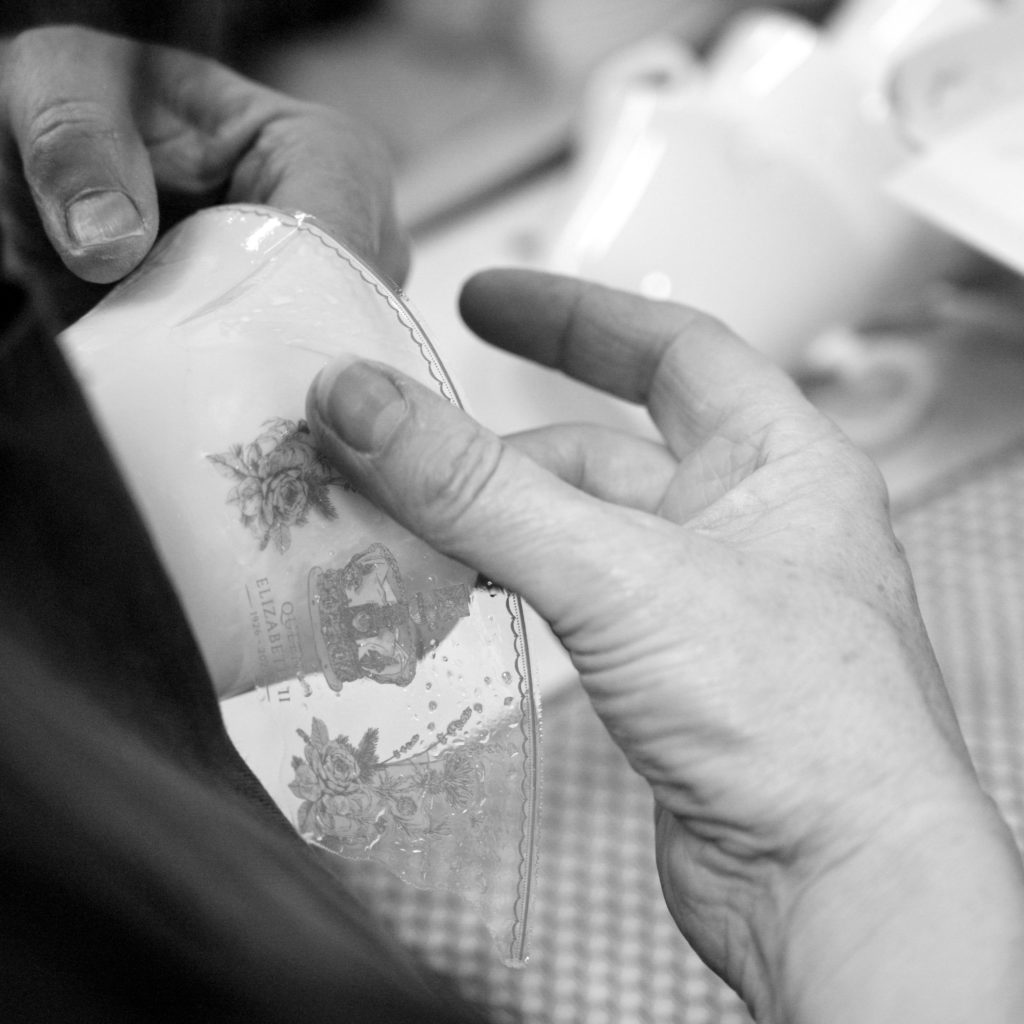Uncertain about sustainability in your supply chain? We talked to Victoria Eggs, award-winning designer and founder of her quintessentially British homeware brand of the same name, about her experience of partnering with British manufacturers to ensure a sustainable and feel-good manufacturing process which aligns with your sustainability values.
Why does sustainable manufacturing matter?
Sustainability is firmly on the consumer agenda in 2023, with customers around the world making ever more sustainable choices when they spend their money.
The latest edition of the EY Future Consumer Index (November 2023) suggests 43% of global consumers want to buy more from organisations that benefit society, even if their products or services cost more. And 64% are prepared to behave differently if it benefits society.
Plus, working in a retail partnership has so many implications for your brand that it’s vital to work with people who echo your sustainability values.
And let’s be honest – who doesn’t want to work with manufacturers we know, like and trust and who echo our own values? It’s a win for everyone.
At Victoria Eggs, we have four pillars of sustainability criteria when working with a new manufacturer:
1) Brand Alignment
We choose to work with UK manufacturers, because we can create a direct working relationship with them.
Not only does this give us a strong connection, but it also allows us to see their manufacturing methods for ourselves (it’s such a thrill to watch your product being hand-crafted!) and meet the people who are creating our product.
This underpins our brand ethos and gives us a wonderful sense of pride in each and every unique piece, and the confidence that everything is produced to a meticulous standard in ethical and fair working conditions. We often find that the people who hand craft our products have worked in these factories for years and years, and up to 20 pairs of hands can be involved in lovingly creating each and every mug.


2) Sustainable Supply Chains
For me, sustainability in the supply chain involves having sight of every single process and ingredient which goes into the manufacturing of our end product. As tricky as this may sound, if you choose to work with a good sustainable manufacturer they will have complete traceability for each and every product and process.
In practice, at Victoria Eggs that means tracing every last thing from the cotton in our textiles, to the Cornish Clay batches which are hand dug, right down to the water-based ink (which has virtually no impact on the environment) used to print our designs textiles. Having this visibility over each and every part of the process gives me 100% confidence that we are operating ethically and sustainably at every point.
Another thing to look out for is SEDEX or EMS accreditation such as ISO 14001 meaning that the company meets sustainable business practice requirements.
3) Environmentally Friendly Manufacturing Processes
From the start, it was always my intention that Victoria Eggs products would be made with minimal impact to the environment. I also knew that I wanted to create all our products in the UK to reduce our carbon footprint from the offset. I used the resources in the British Library to identify UK based manufacturers and spoke to them in depth about their sustainability and environmental policies. I also frequently visit the sites as they update processes and equipment to keep up to date on how our products are being made.
4) Supporting British Craft
Proudly flying the flag for all things British is an integral part of the Victoria Eggs brand, and so it’s critical for me that every single item supports traditional British craft methods, helping to keep these skills and industries alive in the UK.
Buying in the UK also can help minimise fuel and shipping emissions (and costs) although it can add to lead-times because products are made in small batches. My advice here would be to learn to forecast predictably, but to also maintain a great relationship with your manufacturers – they are much more likely to pull out all the stops for you in times of demand.
A good example of this would be during the Queen’s Platinum Jubilee, when there was a totally unprecedented demand for my Queen’s Platinum Jubilee collection. We worked closely (day and night!) with our suppliers, and they were absolutely invaluable to help us keep up with demand and to ship to our customers as quickly as we could when stocks ran out.
Is creating an ethical supply chain worth the effort?
Yes! Whilst creating an ethical supply chain in the UK does have its challenges, for me they are far outweighed by the benefits of working with sustainable, ethical and small batch producers. It helps distinguish your brand in a busy and competitive market, and reassures your customers that they are making a positive contribution to sustainability.
If sustainability is at the heart of your brand, then the UK is a great place to start – your customers will thank you for it.

Victoria Eggs homeware is a celebration of all things British. Victoria’s charming hand-illustrated creations are inspired by the nostalgic whiff of salt and vinegar chips at the seaside, quirky colloquialisms, the royal family, and the vibrant essence of London.
You can read more about Victoria Eggs’ sustainability practices at trade.victoriaeggs.com
